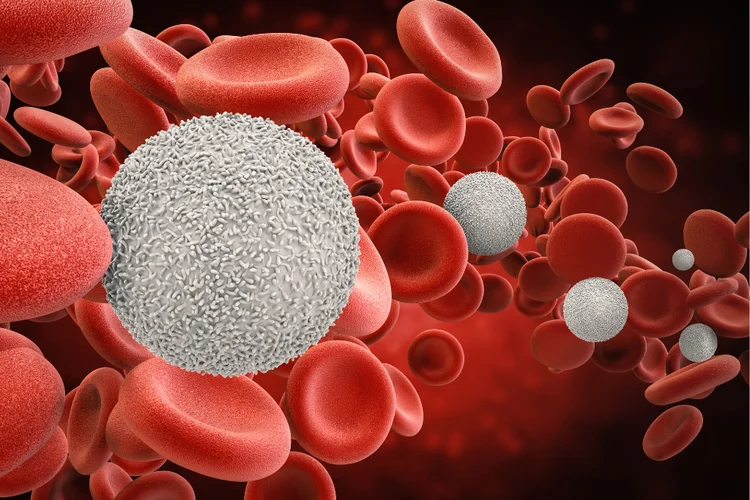What Is Semaglutide?
Semaglutide is a prescription medicine used to help people with type
2 diabetes manage their blood sugar and to support weight loss in those
who are overweight or obese.
It belongs to a group of medicines called GLP-1 receptor agonists (GLP-1 RAs),
which copy the action of a natural hormone known as glucagon-like peptide-1.
This hormone plays a role in keeping blood sugar steady and controlling
appetite. Other medicines that work in a similar way include liraglutide and dulaglutide.
Semaglutide is typically used alongside other measures such as healthy
eating, regular physical activity, and lifestyle adjustments as part of a
broader treatment plan.

Understanding Digestion and Blood Sugar Regulation
Digestion has a direct impact on how the body uses food for energy and controls
blood sugar levels.
When carbohydrates are digested, they turn into glucose, which the body uses as
fuel. The pancreas releases insulin to move glucose into cells, while another
hormone called glucagon tells the
liver to release stored glucose when levels are too low.
In type 2 diabetes,
this process does not work properly. The body may not respond well to insulin, too
much glucose may be released, and blood sugar levels become harder to keep stable.
Digestion also influences appetite. A key part of this is gastric emptying, which is
the speed at which food leaves the stomach and moves into the small intestine. If
the stomach empties too quickly, blood sugar can rise sharply. If it empties more
slowly, sugar levels are steadier and the feeling of fullness lasts longer, which
can help with appetite control.
Semaglutide Mechanism of Action
Semaglutide works by improving blood sugar control and reducing body weight through multiple processes:
- It increases insulin release when blood sugar is high, lowering glucose in the bloodstream.
- It decreases glucagon secretion, reducing excess glucose output from the liver.
- It activates GLP-1 receptors in the brain to suppress appetite and reduce cravings.
- It delays gastric emptying, keeping food in the stomach longer to control sugar levels, increasing satiety by making you feel full for longer, and reduces calorie intake.

Research also indicates that semaglutide may lower the risk of heart attack, stroke, and cardiovascular-related death in individuals with obesity and existing heart conditions.
Types of Semaglutide in Singapore
Different formulations of semaglutide are available, each serving specific medical needs
| Formulation | Uses |
|---|---|
| Ozempic® | A weekly injection mainly for type 2 diabetes management. It controls blood sugar and may support weight loss. |
| Wegovy® | A higher-dose injection approved for weight management in adults with obesity (BMI ≥30) or overweight (BMI ≥27) with related conditions. |
| Rybelsus® | A once-daily oral tablet for type 2 diabetes, offering an alternative for those preferring non-injectable treatment. |
Potential Semaglutide Side Effects
Like other medications, semaglutide may cause side effects, most of which are mild and often improve over time as the body adjusts. Common side effects include:
- Redness or swelling at the injection site
- Gastrointestinal issues such as stomach discomfort, bloating, nausea, diarrhoea, or constipation
- Fatigue or weakness
- Dizziness, particularly when starting treatment
- Slight increases in resting heart rate
Seek medical advice if you experience persistent nausea, severe abdominal pain, dehydration, or symptoms suggesting pancreatitis or gallbladder problems. Always consult your doctor for guidance on managing side effects.
Who Is Semaglutide Not Suitable For?
Semaglutide is not recommended for everyone. It may be unsuitable for individuals with:
- Type 1 diabetes, as it relies on the body’s ability to produce insulin, which is absent in type 1 diabetes
- A personal or family history of medullary thyroid cancer or multiple endocrine neoplasia syndrome type 2, due to a possible link between GLP-1 RAs and thyroid tumours
- Severe gastrointestinal conditions, since semaglutide slows digestion and may worsen symptoms

Where Can I Get Semaglutide in Singapore?
In Singapore, semaglutide is only available with a prescription and
cannot be purchased over the counter.
If you are considering semaglutide or other prescription medicines for diabetes or
weight loss, a medical
consultation is required to review your health history, discuss potential
benefits and risks, and determine whether the treatment is suitable for you. Regular
follow-up appointments are also needed to monitor progress and adjust the treatment
plan if necessary.
Why Choose Us?








Navigate Easy With Google Maps
Health Screening Singapore (Anson House)
Nearest MRT: EW15 Tanjong PagarHealth Screening Singapore (Camden Medical Centre)
Nearest MRT: TE13 Orchard BoulevardHealth Screening Singapore (CPF Jurong Building)
Nearest MRT: NS1/EW24 Jurong EastFrequently Asked Questions (FAQs)
Both liraglutide and semaglutide belong to the same class of medicines called GLP-1 receptor agonists, used for managing type 2 diabetes and weight control. The main differences lie in how often they are taken and how effective they may be. Liraglutide is injected once daily, while semaglutide is usually given once a week. Research indicates that semaglutide may provide stronger improvements in blood sugar control and weight reduction. The choice between the two depends on individual health needs and how well each option is tolerated. A doctor can determine whether these medicines are suitable for you and advise which option is more appropriate.
Semaglutide does not directly cause changes to the menstrual cycle. However, weight loss or metabolic changes during treatment can affect hormone levels, which may lead to irregular or missed periods in some individuals. If this occurs while you are taking semaglutide, it is important to consult your doctor to rule out other causes.
Semaglutide is the active ingredient used in Ozempic, but Ozempic is just one brand of semaglutide. Ozempic is approved for the treatment of type 2 diabetes, while other brands, such as Wegovy, are prescribed for weight management. Although they share the same ingredient, each product has its own approved purpose and dosing schedule.
No, semaglutide cannot be purchased over the counter in Singapore. It is a prescription-only medicine, which means you need a medical consultation before it can be prescribed. This ensures your health history, suitability, and potential risks are properly assessed before starting treatment.
Tirzepatide and semaglutide are both injectable medicines used for type 2 diabetes and weight management, but they work in different ways. Semaglutide acts only on GLP-1 receptors, while tirzepatide targets both GLP-1 and GIP receptors, which are hormones that influence blood sugar control and appetite. The choice between the two depends on your health condition and treatment goals, and a doctor will need to assess your suitability since these are prescription-only medicines.
Semaglutide may be prescribed for adults with type 2 diabetes who need improved blood sugar control, or for those who are obese (BMI ≥30) or overweight (BMI ≥27) with weight-related conditions such as high blood pressure or high cholesterol. It is not suitable for everyone, including people with certain medical conditions such as thyroid cancer or severe digestive disorders. As semaglutide is a prescription-only medicine, a doctor will need to review your medical history before deciding if it is appropriate.
Studies show that semaglutide can support significant weight loss when combined with lifestyle changes such as a balanced diet and physical activity. It works by reducing appetite and slowing the speed at which food leaves the stomach, helping to lower calorie intake. That said, results differ from person to person, and the medicine is not a replacement for healthy habits. Whether semaglutide is suitable depends on your health status and long-term goals, and a doctor will need to assess this as it is a prescription-only medicine.
Yes, semaglutide is approved for weight management in people who are obese or overweight, even if they do not have diabetes. It is a prescription-only medicine that requires a doctor’s supervision to confirm it is suitable for your health needs, monitor for side effects, and ensure safe use.
You can request semaglutide from your GP if it is available, but whether it is prescribed will depend on factors such as your medical history, current health, and treatment goals. Some GPs may prescribe it directly, while others may refer you to a specialist for further evaluation.
Semaglutide is not suitable for certain groups, including people with type 1 diabetes, those with a personal or family history of medullary thyroid cancer or multiple endocrine neoplasia syndrome type 2, and individuals with serious digestive conditions such as gastroparesis. It may also be unsuitable for people with other medical conditions or those taking specific medicines. A doctor will need to assess your suitability as it is a prescription-only medication.
Prices for semaglutide vary depending on the brand, clinic, and prescribed dosage. It is best to check directly with your chosen clinic, which can also advise on availability and cost. Since it is a prescription medicine, a doctor will need to conduct a consultation to assess your suitability.
Weight loss results differ from person to person, but clinical studies suggest an average reduction of about 5 to 6 per cent of body weight within the first three months. Some individuals may lose more depending on dose, adherence, and personal metabolism. It is best to consult your doctor who can provide a more tailored expectation based on your health profile.
Losing 20 pounds (around 9 kg) in a single month is not typical with semaglutide. The medicine is designed to support gradual, steady weight reduction rather than rapid results. Clinical trials show that weight loss usually builds up over several months when combined with healthier eating and regular exercise. A personalised plan from your doctor can help you achieve optimal and sustainable progress.
Common side effects include nausea, vomiting, diarrhoea, constipation, and stomach discomfort, especially during the early weeks of treatment. In rarer cases, semaglutide may be linked to pancreatitis, gallbladder disease, or kidney problems. There is also a potential risk of thyroid tumours in individuals with a history of certain thyroid cancers. Your doctor will assess these risks to determine your suitability before starting treatment.
Semaglutide does not specifically target belly fat but promotes overall fat reduction, including visceral fat stored around the abdomen. As weight comes down, many people notice a gradual decrease in abdominal fat. Results vary, and combining treatment with balanced eating and physical activity improves outcomes.
Injectable forms such as Ozempic® and Wegovy® are taken once weekly because the medicine stays active in the body for around seven days. This long half-life allows consistent control of blood sugar and appetite with fewer injections, which many people find more convenient. The oral version, Rybelsus®, is taken daily instead.
Yes, you can eat sugar while taking semaglutide, but it should be kept in moderation. Excessive sugar intake can cause blood glucose spikes and make weight management more difficult, even though the medicine helps regulate sugar levels. A balanced diet with controlled carbohydrate intake supports the best results. It is best to follow your doctor’s advice on diet and lifestyle changes, as these form part of a holistic treatment plan alongside semaglutide.
